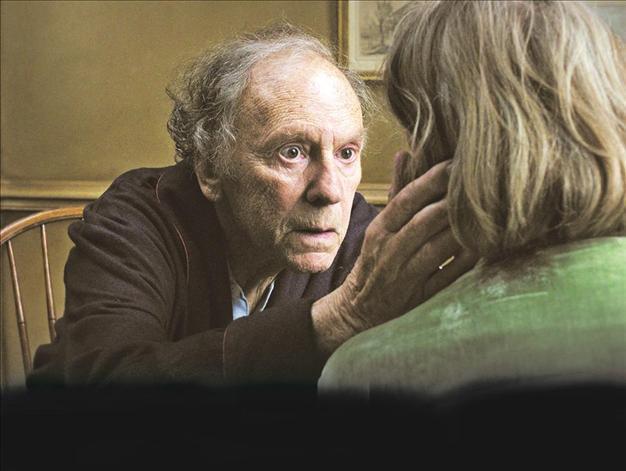Haneke analyzed in Istanbul Modern Cinema program
ISTANBUL

Michael Haneke’s films are reflecting on Istanbul Modern cinema’s screen.
Michael Haneke celebrates his Oscar for his latest feature “Amour” (Love) in the best foreign movie category, Istanbul Modern Cinema is presenting the complete filmography of the director. The screening program starts today with an exclusive discussion session between Roy Grundmann, author of the book “A Companion to Michael Haneke,” and Hüseyin Tabak, one of Haneke’s students and director of “Your Beauty is Worth Nothing,” which won the Golden Orange “Best Film” award in 2012.The films of Haneke, who is perceived as one of the greatest contemporary film directors of Europe, will be the main focus of the talk.
The program is being carried out in cooperation with the Goethe Institute, Austrian Cultural Office and French Cultural Center, and will screen all 21 of Haneke’s films, including both television movies and award-winning major motion pictures as well as “Amour,” for which the director won the Golden Palm in the Cannes Film Festival in addition to an Academy Award, for which it was nominated in five categories.
Haneke is Grundmann’s current subject of research. Grundmann calls the director’s work the intersection of modernism and postmodernism, and says on his website that: “My forthcoming monograph (Wiley-Blackwell, 2013) reads Haneke’s films through a discussion of Theodor W. Adorno’s concept of aesthetics. My discussion of Haneke’s work seeks to place Adorno in dialogue with philosophers as diverse as Jean-Francois Lyotard and Jacques Ranciére.”
In the book, Grundmann emphasizes his interest in aesthetics, intertextuality and the relationship between film and other arts. His website continues, “I strongly encourage interdisciplinary [studies] in the humanities and, indeed, between the humanities and the natural sciences. I believe that film and media studies must continue its dual approach of theory and criticism, renewing its commitment to theoretical rigor and philosophical complexity, while also remaining invested in its venerable tradition of intellectually informed, sophisticated film criticism that preceded academic film studies and continues to exert its vital influence within and without the academy. My own work seeks to partake in both these directions.”
Analyzing Haneke’s movie
The screenings begin today with “Amour” and will continue on March 6 with “After Liverpool” (Und Was Kommt Danach?), a Heneke movie from 1973, originally written as a radio sketch by James Saunders. Haneke’s first film relates to two complete strangers coming together, falling in love, their quarrels, realizing the difficulty of reaching a rapport and their separation. Other early Haneke films that will be screened at Istanbul Modern Cinema include cult classic “Funny Games,” “The Piano Teacher” (La Pianiste), based on the novel by Elfriede Jelinek, post-war drama “Fraulein: A German Melodrama,” “Three Paths to the Lake” (Drei Wege Zum See), “Bulk Garbage” (Sperrmüll), “Lemmings Part 1: Arcades” (Lemminge, Teil 1: Arkadien), “Lemmings Part 2: Injuries” (Lemminge, Teil 2: Verletzungen), “Variation- Utopias Exist - Yes, I Know!” (oder Dass es Utopien gibt, weiss ich selber!), “Who was Edgar Allan?” (Wer war Edgar Allan?), “The Seventh Continent,” “Benny’s Video,” “The Rebellion,” “71 Fragments of a Chronology of Chance,” “The Castle” (Das Schloss), “Code Unknown” (Code Inconnu: Recit Incomplet divers voyages), “Time of the Wolf,” “Hidden” (Caché) and “White Ribbon.”
















